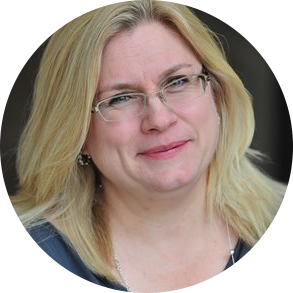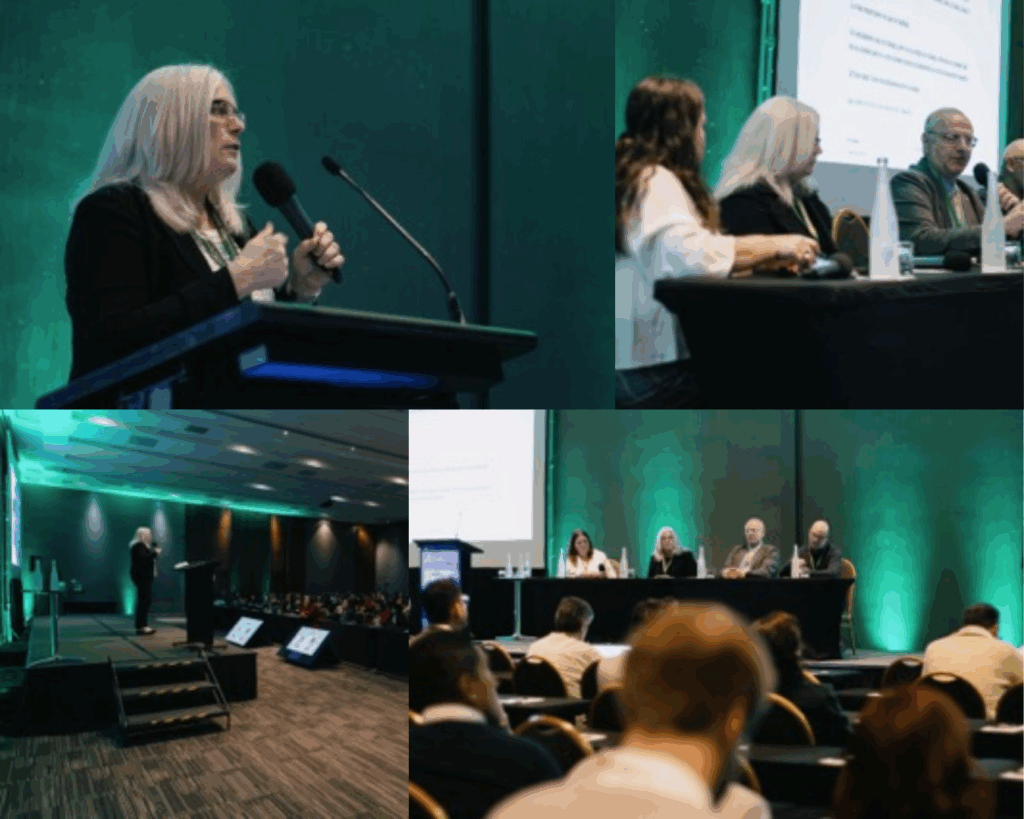Recently, I had the opportunity to participate in the EDUTIC conference in Santiago, Chile. Engaging with educators and leaders from across the region reminded me how much we gain when we exchange ideas and experiences about the evolving landscape of digital education.
Online learning is expanding rapidly across South America, much like it is in other parts of the world. As of 2024, the online education sector in Latin America was estimated to be worth around USD 4.21 billion, with projections indicating it could exceed USD 22.86 billion by 2033, driven by an average annual growth rate of 20.7% (IMARC Group, 2024). What stands out in this region, though, is the variation in how that growth is being managed. Some countries are implementing progressive frameworks informed by international best practices. Others are introducing regulations that reflect outdated assumptions about online education, relying on ideas that no longer hold up under current research or practice.
Infographics powered by Genially
Despite these differences, a common thread runs through the work being done. Most policymakers are acting out of a desire to serve students well. While intentions are often good, the outcomes depend heavily on whether the policies are informed by evidence and grounded in an understanding of how effective online learning actually works.
Conversations in Chile
During my time in Chile, I had the opportunity to meet with leaders from several institutions actively engaged in shaping the future of online learning. Among them was IACC, one of the country’s first institutions to offer programs exclusively online. Chile benefits from high digital connectivity, with online individual penetration reaching 94.1% and mobile internet penetration exceeding 155% as of 2025 (DataReportal, 2025). With its focus on technical-professional education, IACC has become a significant contributor to national conversations about how fully online models can serve diverse student populations. Their experience navigating the challenges of digital delivery within a shifting policy landscape offered valuable perspective.
The insights shared by IACC echoed many of the broader themes that surfaced throughout the EDUTIC event. Across institutions, discussions consistently returned to a common set of concerns. Leaders emphasized the need for greater alignment across accreditation requirements, student support services, digital infrastructure, and instructional design. Despite differences in institutional context, there was broad agreement on the importance of prioritizing professional development. Faculty and staff need more than basic familiarity with digital tools. They also require sustained support to engage students effectively, personalize learning, and apply technology in ways that enhance the educational experience.
These conversations reinforced a key takeaway. High-quality online learning is not the result of isolated efforts. It requires institutional coordination, cross-functional collaboration, and long-term investment in systems that keep student success at the center. Institutions like IACC illustrate how this kind of integrated approach can be implemented in practice.
What’s Happening in Brazil
While Chilean institutions are working to strengthen internal systems, Brazil is taking a very different approach at the national level. The country has recently introduced a sweeping set of regulations for distance education that significantly reshapes how online learning can be delivered. While these changes are aimed at improving educational quality and student outcomes, they have sparked concern about access, especially for students who depend on the flexibility of fully online learning.
The updated rules require more rigorous standards for infrastructure, student services, and instructional practices. In theory, these could help improve outcomes. But they also limit the availability of fully online degrees in several fields, including health careers, law, and psychology, by requiring in-person components. Even programs that remain mostly online may still need some level of on-site participation.
This approach could unintentionally create new barriers for learners. Students who live far from campus, work full-time, or have family responsibilities may find it harder, if not impossible, to meet the new requirements. According to the 15th edition of the Mapa do Ensino Superior no Brasil (Semesp, 2025), nearly half (49.3%) of Brazil’s higher education enrollment in 2023 came from distance education, up from 45.9% in 2022. In absolute terms, Brazil had nearly 10 million higher education students in 2023, with 95.9% of distance education enrollments occurring in private institutions (Semesp, 2025).
The motivation for these policy shifts appears to stem from ongoing concerns about student persistence and completion in online settings. In many cases, institutions expanded their digital offerings rapidly without building the necessary support systems. As a result, regulators are stepping in to manage quality more directly.
However, addressing these issues through tighter restrictions may not solve the core problems. A more sustainable path forward would include investments in professional development, stronger learner support systems, and more thoughtful digital pedagogy. Returning students to physical classrooms does not address the reasons why many struggle to stay engaged in the first place.
Brazil’s experience illustrates the challenge of balancing quality assurance with equitable access. As other countries consider similar reforms, it’s worth asking whether new policies are truly aligned with the realities and needs of today’s learners.
Taking a Broader View
The wide variation in how online learning is regulated and implemented points to a broader challenge. Too often, institutions focus almost entirely on course design. While well-designed courses are foundational, they represent only one element of a larger system. Lasting success in online education requires full integration into the institution’s strategy and commitment from senior leadership.
This broader effort involves aligning student services, digital infrastructure, advising, faculty development, and community engagement in a coordinated and intentional way. Without that systemic foundation, even the strongest courses may not fully meet the needs of learners or educators.
Looking Ahead
As online education continues to evolve, it has become increasingly clear that success depends on more than just the quality of individual courses. Institutions must design learning experiences that align with how students learn while also building the broader systems such as advising, infrastructure, faculty development, and student services that make those experiences possible.
The conversations I had in Chile, along with developments across South America, highlight both the promise and complexity of this work. When strategy, collaboration, and a focus on learner needs come together, online learning has the potential to expand access and improve outcomes in meaningful ways.
While approaches vary, these emerging models provide valuable insight into what makes digital education both sustainable and effective. The most promising examples reflect a shared understanding that leadership, technology, pedagogy, and institutional culture must all be aligned in order to create environments where students and educators can succeed.
References:
- DataReportal. (2025). Digital 2025: Chile. https://datareportal.com/reports/digital-2025-chile
- Instituto Semesp. (2025). 15º Mapa do Ensino Superior no Brasil. https://www.semesp.org.br/mapa/edicao-15/brasil/
- IMARC Group. (2024). Latin America Online Education Market Report. https://www.imarcgroup.com/latin-america-online-education-market

Jennifer Mathes, Ph.D., serves as the Chief Executive Officer of the Online Learning Consortium (OLC). In her role, she sets the strategic direction for the organization and spearheads the development of key projects and programs to benefit OLC members. With over 25 years of experience in both public and private sectors of education, Dr. Mathes has been a staunch advocate for digital learning initiatives.
In addition, Dr. Mathes is the author of the ICDE Report Global Quality in Online, Open, Flexible and Technology Enhanced Education: An Analysis of Strengths, Weaknesses, Opportunities and Threats (2019) and co-editor of the OLC Quality Scorecard Handbook: Criteria for Excellence in Blended Learning Programs (2017). She continues to write and present on key topics in online, blended and digital learning.
Dr. Mathes began her academic journey as a faculty member, eventually ascending to the role of Chief Academic Officer. She has also served as a consultant, advising educational institutions on implementing best practices in online education. Her recent work has involved collaborating with higher education associations and institutions internationally to support the global adoption of best practices in online learning.
Dr. Mathes earned her Doctor of Philosophy in Education from the University of Illinois at Urbana-Champaign. She also holds a Master of Science in Business Education and a Bachelor of Science in Mass Communications, both from Illinois State University.





